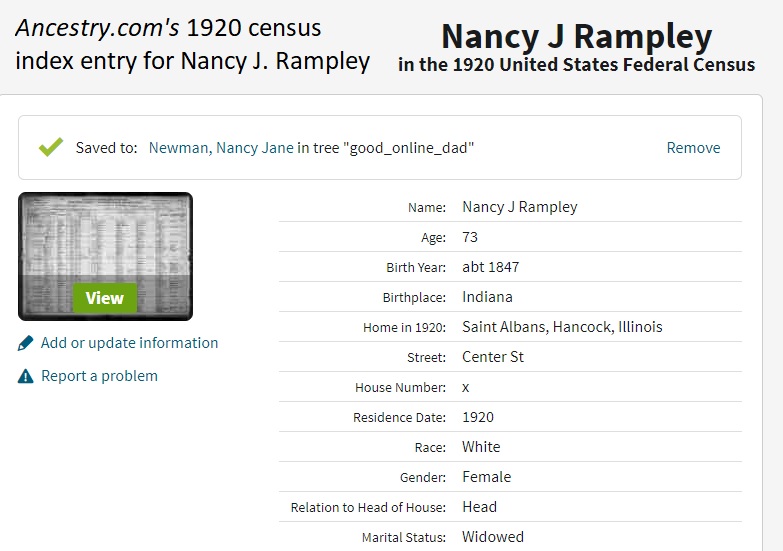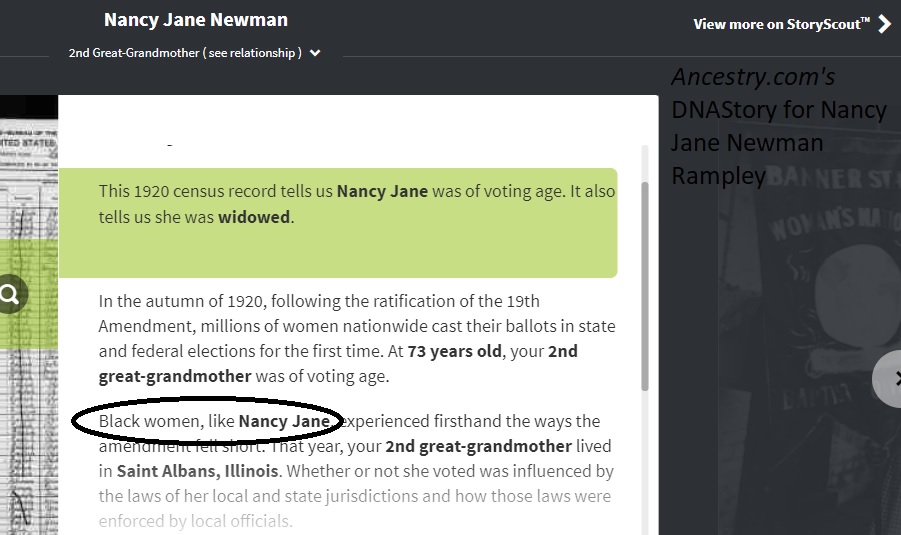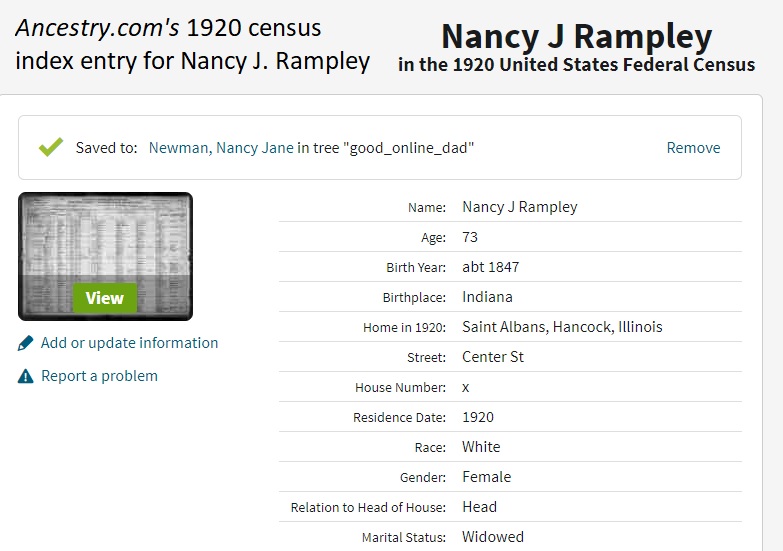
Ancestry.com’s 1920 census index transcription for Nancy J. Rampley of St. Albans’ Township, Hancock County, Illinois, correctly transcribes her “race” as “white.” It’s easy to read on the actual census.
But while looking at Ancestry.com’s new “StoryScout” entry for Nancy, I wondered why it was talking about voting rights for African-Americans. The county in which Nancy lived was overwhelmingly white throughout her lifetime and certainly so during the time of the 1920 census.
Why was StoryScout discussing it? It was particularly odd since StoryScout seems to pride itself on being relevant to the life of the ancestor it is discussing.
Then I realized that for some reason, apparently StoryScout thinks Nancy Jane was black. This statement is made in a section of the “story” where it discusses Nancy’s 1920 census entry.

This is what happens when stories are autogenerated with key elements pulled from the depths of a database that apparently has incorrect information. Nancy Jane was not African-American. To the best of my knowledge every record for her that provides an answer for “race” indicates she was white or Caucasian.
Nothing wrong with being Black. Nothing wrong with discussing how Americans have been striving to vote since the country began. But lets get the details straight so you know what elements of the automated story to plug into the “story” that’s being written.
The story also says “your 2nd great-grandmother lived in Saint Albans, Illinois.” That is just awkward. No one says that. It is Saint Albans Township. Nancy lived in the village of West Point. Auto-generated stories often result in phrases that are at best awkward and, at worst, incorrect. To a local person or anyone familiar with local geography and place names, this sounds like it was written by someone who really did not know what they were talking about.
The 1920 census even indicates that Nancy was living in West Point Village–not just the larger area known as St. Albans Township.

I realize these “stories” are an attempt to get people engaged in their family history.
But lets get the details right.
To top it off, I don’t know what Nancy thought about women getting the right to vote. She may have been all in favor or it or she may not have. She is one of the thousands of women who did not leave a record behind of her feelings about getting the right to vote.


3 Responses
I don’t have StoryScout because I don’t do DNA testing…sounds like I’m not missing much… While experienced genealogists will pick up on these problems, newer ones won’t and might end up just going with the flow, and that’s a dangerous thing.
Personally, I only look at it so that I have an idea of what it is doing–although I suspected to be honest.
Integrating your relative’s life into the larger historical context is always a good idea but this automated approach is not the best way to do it.
I’m in agreement that many will just “go with the flow” of these stories and take them as being more truthful than they often are.
“We” (My daughter & I ) were glad to check out the “Story Scout” article about my Maternal Grandfather (Arnold Robinson) being (Distantly) related to “Louisa May Alcott”. It was “fun” to check on….The other “Stories” are that he & other Grandparents were buried in “England/UK”…..I’m not sure how that is A Story, but I check every so often to see if there’s any new ones….. Thanks!